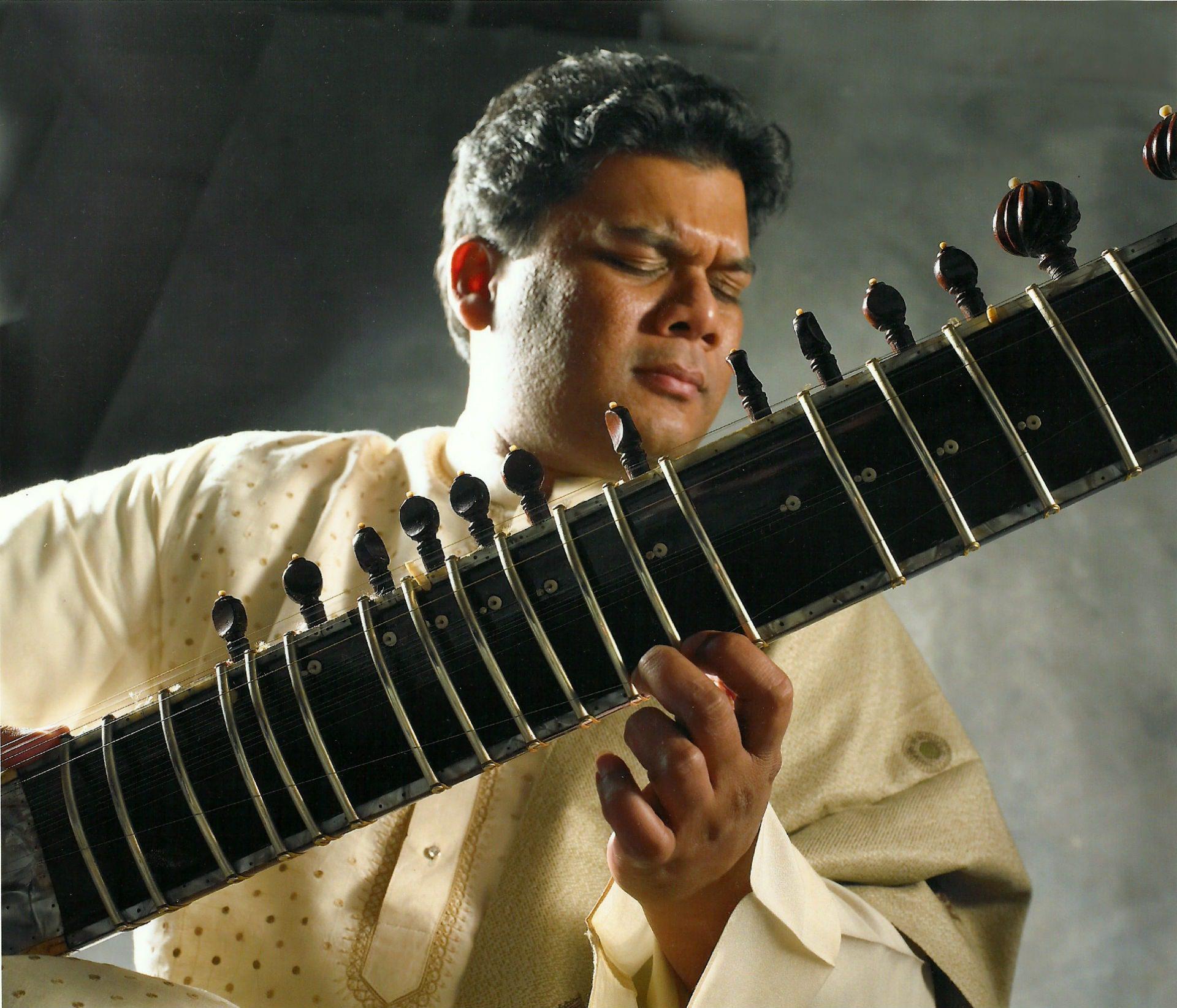Mehboob Nadeem performs at The Great British Gharana accompanied by two of his student, Akash Patel and tabla player Kousic Sen. We asked Mehboob a few questions about British Indian Music and the ensemble:
British Indian Music is a growing genre which is gaining great support and interest in the UK, what do you think makes the genre special?
Well it’s true that there are a lot of young people interested in Indian classical music in Britain are coming out to perform and pursue a career in classical music. It’s very heartening to know that the government of Great Britain, councils across Britain and great organisations like Milapfest are recognising their talents and celebrating the great amount of effort put in by their gurus and teachers without which this whole genre would not have come about. Though there has over the past decades been a lot of travelling musicians and great gurus who have come here and taught the students from time to time, but as we all know our music is so vast and deep it cannot be taught within a time capsule of short workshops, shibirs, and the time frame of a few lessons. Therefore the real teaching has been imparted from the teachers and gurus who have been residing here and have been doing their job silently and diligently, not only training students in the intricacies of music, but also the aesthetics and Sanskars of the Guru Shishya Parampara. This genre of talented British aspirants is special because in spite of not being on the soil of India, they have retained the purity, refinement and uniqueness of their individual style and Gharana.
When we describe British Indian Music, what do you think makes it British?
Indian music is growing in popularity all over the world but in Britain it is now a part of British culture, whether it is traditional sitar, or Bhangra and Bollywood songs, it attracts students from all communities not just Asian. Britain is a melting pot of all kinds of music and cultures and Indian music holds a prominent place in it.
As a musician teaching and performing Indian music in the UK, what has influenced you, and how can this be seen in your own practice?
As a musician performing Indian music I feel that the opportunity I get to work and perform with different styles of music like Classical Western, Jazz, Blues and Chinese traditional music, has broadened my ability and broken down barriers, thus merging classical music with many other styles and traditions. As a Guru teaching Indian Music to Asian and British students, I feel very inspired with their enthusiasm and dedication and thus want to impart all my knowledge.
Why is it important to celebrate British Indian Music?
Organisations such as Milapfest have finally recognised the hard work of the Gurus and the efforts of the students who have over the past decades popularised Indian music amongst British audiences, making Indian Music a part of the fabric of British culture.
What excites you about the Great British Gharana event?
I am looking forward to the Great British Gharana event as it celebrates the efforts of the gurus and students and the guru shishya parampara.
How many years have you and/or your ensemble have been teaching/performing Indian music in the UK?
I have been teaching the sitar for more than 30 years. I came to England in 1997. Since then I have been teaching and performing Indian classical sitar in universities, schools, colleges, and privately. Since I am also a descendent of the Agra Gharana, a prominent vocal style in India, singing comes naturally to me. I learnt from my father Ustad Yaqub Hussain Khan and Ustad Aslam Khan. I, along with Sushma Zaveri disciple of late Pandit Dinkar Kaikini and Ustad Aslam Khan, have been training and teaching vocal music in Britain since 1999. We have been performing traditional classical sitar and Hindustani classical vocal music along with devotional and Sufi music under the name of “SWARAMRIT” since 2000 in the UK. Every year we organise a showcase event for our students to perform on Guru Purnima.
How would you describe your style of Music?
My style of music is the Vilatkhani Gharana on sitar, and my style in singing is the Agra Gharana, the oldest style of singing in India. I am the fifteenth generation of the Agra Gharana, continuing the tradition of performing and teaching vocal music. I am the grandson of the legendary Ustad Vilayat Hussain Khan (vocalist) “Pranpiya” and Ustad Azmat Hussain Khan (vocalist) “Dilrang”of Agra Gharana. I also perform sitar and vocals with jazz, blues, Chinese, Western and World Music.
The Great British Gharana event will take place on Friday 23rd November 2012 at the Southbank Centre, London. For tickets and more information please click here
For more information about Mehboob Nadeem please visit his website here.


